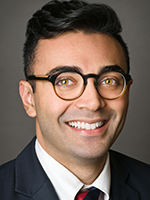 The last decade has seen an unprecedented growth in the number of students from England, the United States, and other high-income countries involved in global health and development projects in emerging economies around the world. The barriers that traditionally created significant separation between the classroom and the field in global health and development, such as transportation and the lack of easy access to information, are no longer relevant today.
The last decade has seen an unprecedented growth in the number of students from England, the United States, and other high-income countries involved in global health and development projects in emerging economies around the world. The barriers that traditionally created significant separation between the classroom and the field in global health and development, such as transportation and the lack of easy access to information, are no longer relevant today.
With the growth of a new global health workforce, it is especially important to recognize that medical and public health students offer a very unique position given that they are situated at the nexus of academic theory and pragmatic reality. Historically, we have seen a stark disconnect among academics, activists, policy makers, lobbyists, decision makers, and consumers in the global health field. To their advantage, students who are being trained in today’s educational environment are far more integrated with the perspectives of all of these players than was the case a generation prior. Accordingly, students have the responsibility to bring these global health factions together, and transform walls into bridges in the process.
One particularly critical divide in global health is between academic exercise and real action. Think of the former as prestigious professors and prolific researchers publishing large-scale clinical trials and writing highly theoretical or philosophical works, and the latter as the people who largely work in the neighborhood, where the day-to-day injustices do not wait for publications or presentations. Today’s students are expected to participate in both worlds, and in doing so, they can truly help translate research into action.
As a student of global health at Yale University several years ago, I took advantage of my own privilege to bring these entities together in the form of many public health endeavors. I learned quickly that public health problems that must be solved do not start in the Ivory Tower—to understand what is needed, one must begin on the ground, where people are struggling with and living through the inequities that often later become the topics of academic discourse. This is not to say that academic research is not important—it is essential to ensure that we have evidence behind action. But without action, academia becomes a privilege of the elite with little benefit to those whose health depends on it. Furthermore, even the most sophisticated studies can never truly replicate or comprehend what individual people are going through every day.
One such example where I was able to put this into practice was my work with a non-profit organization in rural Nicaragua treating villagers who were suffering from infestations of parasitic diseases. By walking through the villages with community health workers and talking to people, each family with their own distinctive story, I was able to understand far more about the challenge I was confronting. I could then use this understanding in my academic work, regarding epidemiology, parasitic biology, and behavioral psychology, to begin thinking of public health solutions.
In subsequent years, I was able to contribute substantially to the improvement of many marginalized communities around the world, while ensuring that my education did not become a distant, elitist exercise, rather a core component of the work I was doing.
Medical and public health students have a very unique vantage point: they have the flexibility and passion to travel and work in limited-resource settings, while also having access to expert faculty and research systems from their home institutions. However, it is very easy to take this combination of opportunity and resources for granted. It is thus essential that students make an explicit commitment to lessening the schism between the classroom and the field.
Abraar Karan is a physician and MPH Candidate at the Harvard T.H. Chan School of Public Health in the Department of Health Policy and Management. Twitter:@AbraarKaran.
Competing interests: None declared.